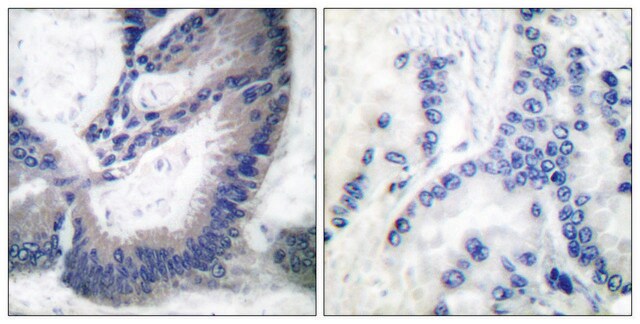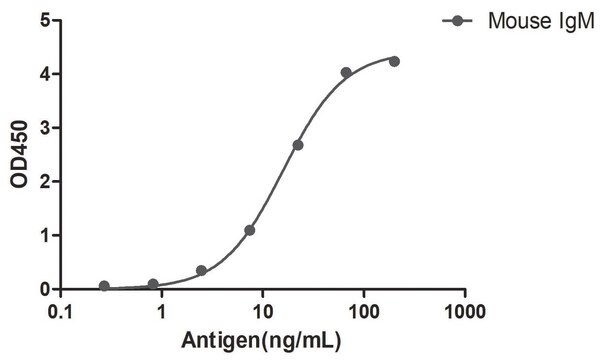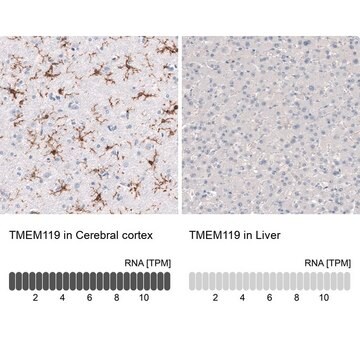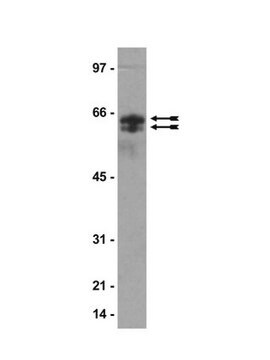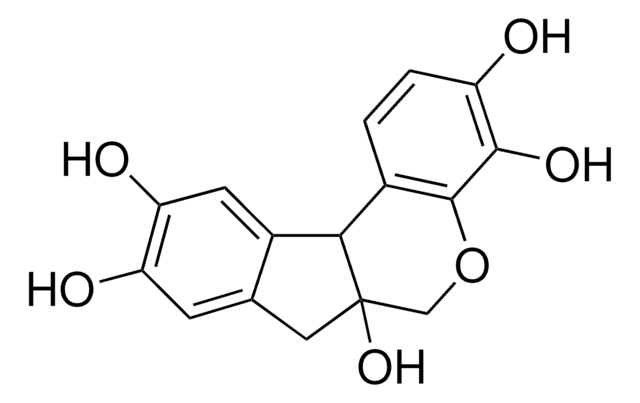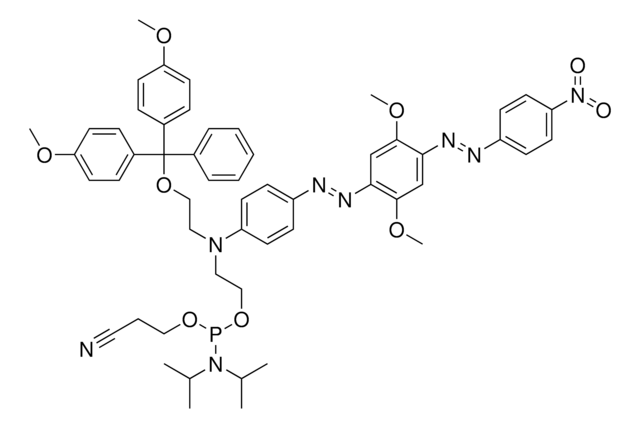MABN328
Anti-peptidyl-citrulline, clone F95 Antibody
clone F95, from mouse
Synonym(s):
Peptidyl-citrulline, Protein-bound citrulline
About This Item
Recommended Products
biological source
mouse
Quality Level
antibody form
purified antibody
antibody product type
primary antibodies
clone
F95, monoclonal
species reactivity
mouse, rat, chicken, human
species reactivity (predicted by homology)
all (based on 100% sequence homology)
technique(s)
immunocytochemistry: suitable
immunohistochemistry: suitable
western blot: suitable
isotype
IgMκ
shipped in
wet ice
target post-translational modification
unmodified
General description
Immunogen
Application
Western Blotting Analysis: A representative lot detected peptidyl-citrulline in CNS proteins from brains and spinal cord of EAE mice (Nicholas et al., 2005).
Neuroscience
Neurodegenerative Diseases
Quality
Imunnohistochemistry Analysis: A 1:250 dilution of this antibody detected peptidyl-citrulline inhuman cerebral cortex tissue.
Target description
Physical form
Storage and Stability
Other Notes
Disclaimer
Not finding the right product?
Try our Product Selector Tool.
Storage Class Code
12 - Non Combustible Liquids
WGK
WGK 2
Flash Point(F)
Not applicable
Flash Point(C)
Not applicable
Certificates of Analysis (COA)
Search for Certificates of Analysis (COA) by entering the products Lot/Batch Number. Lot and Batch Numbers can be found on a product’s label following the words ‘Lot’ or ‘Batch’.
Already Own This Product?
Find documentation for the products that you have recently purchased in the Document Library.
Our team of scientists has experience in all areas of research including Life Science, Material Science, Chemical Synthesis, Chromatography, Analytical and many others.
Contact Technical Service